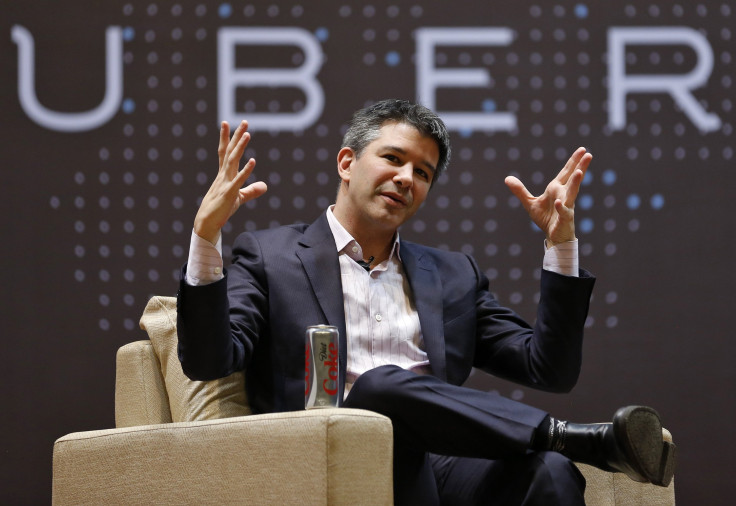Uber CEO Travis Kalanick To Face Price-Fixing Antitrust Lawsuit, Judge Rules, As Uber’s Legal Woes Mount

A federal judge refused Thursday to dismiss an antitrust lawsuit against Uber CEO Travis Kalanick that alleges the algorithm used by the ride-hailing app let drivers fix higher fares, according to reports. The class-action status seeking lawsuit, filed in December, does not name Uber as a defendant.
U.S. District Judge Jed Rakoff rejected Kalanick’s contention that it was “wildly implausible” and “physically impossible” to carry out a conspiracy that involved hundreds of thousands of drivers, Bloomberg reported.
“The capacity to orchestrate such an agreement is the ‘genius’ of Mr. Kalanick and his company, which, through the magic of smartphone technology, can invite hundreds of thousands of drivers in far-flung locations to agree to Uber’s terms,” Rakoff reportedly said.
Following this ruling, Spencer Meyer, from Connecticut, can move ahead with his assertion that the world’s largest ride-hailing service uses its algorithm to manipulate prices and thus violates antitrust laws. Meyer’s lawsuit seeks class-action status on behalf of millions of Uber passengers around the U.S., as well as a subclass of passengers who were subject to high surge prices, according to the Guardian.
Surge pricing is the term used for high fares, sometimes many times the normal fares, which kick in at certain times such as heavy traffic, holidays or bad weather.
“Were it not for Mr. Kalanick’s conspiracy to fix the fares charged by Uber drivers, drivers would have competed on price and Uber’s fares would have been ‘substantially lower,’” the suit says, the Wall Street Journal reported.
While not operating any taxis on its own, Uber gets a commission from drivers for each ride generated by the app.
In an emailed statement, a spokeswoman for Uber reportedly said: “These claims are unwarranted and have no basis in fact. In just five years since its founding, Uber has increased competition, lowered prices, and improved service.”
The company is facing lawsuits and regulatory challenges in many places around the world, including in the U.S. where drivers have demanded to be classified as employees instead of contract workers, the subject of a class-action lawsuit up for trial in California in June.
The company also has been the focus of protests by traditional taxi drivers in many countries, including Canada, the U.K., France, Italy, Australia, Brazil and most recently, Indonesia.
Privately held Uber has been valued at over $60 billion in recent rounds of funding.
© Copyright IBTimes 2025. All rights reserved.





















